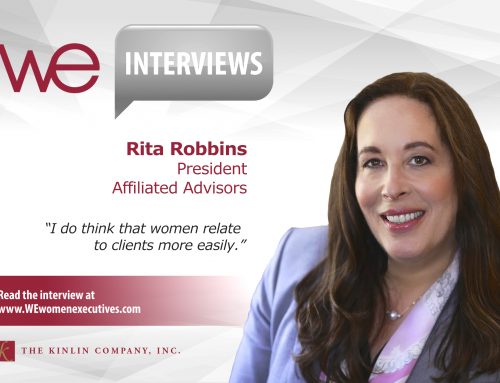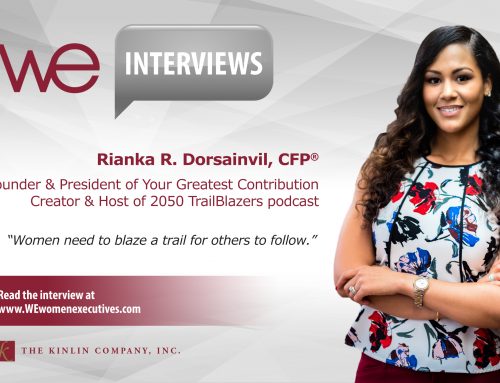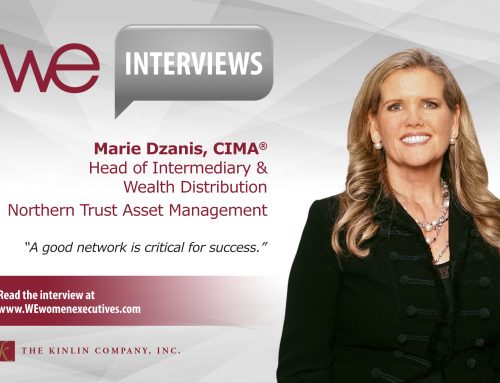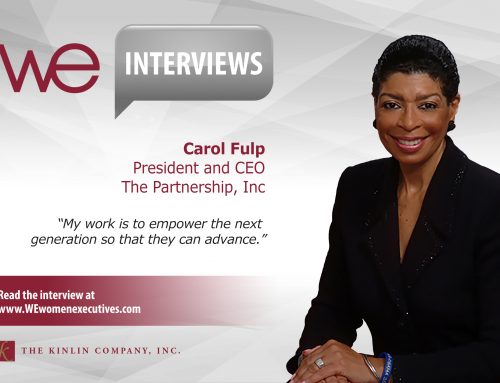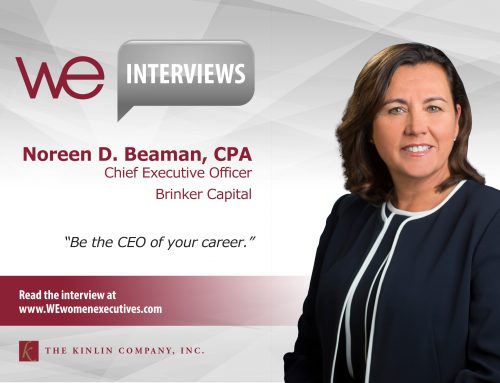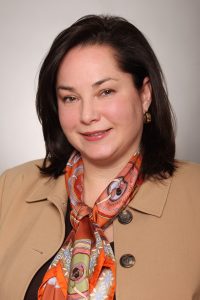 Kelly Williams
Kelly Williams
Senior Advisor
GCM Grosvenor
As a Senior Advisor to GCM Grosvenor with a focus on diversity and corporate social responsibility, Kelly Williams’ responsibilities are vast. Williams joined GCM Grosvenor in 2014 and served until June 2015 as President of GCM Grosvenor Private Markets, where she was a member of its Management Committee and also a member of its Investment Committee.
When I spoke with Williams in 2014, she told me that she spent her time advising new clients, working with existing clients and helping to set strategy for the business. Our ensuing conversation turned out to be as wide-ranging as her responsibilities.
Careers Aren’t Always Linear
One of the first things that caught my eye when reading about Williams was her background in law. (Williams received her J.D. from New York University School of Law and began her professional career in this field.) What prompted her, I asked, to move from this career path into financial services?
“I actually knew from the time that I was a little girl that I was going to be a lawyer,” Williams recalled with a smile. “Last year for Christmas, my mother gifted me my first contract, which I wrote when I was eight. She says I came out of the womb negotiating.”
As a young adult, Williams said, her path was pretty linear. After earning a degree in political science and mathematics from Union College she entered law school at NYU. She knew she wanted to be an attorney, but hadn’t planned much beyond that. “I didn’t think about what kind of lawyer I wanted to be or how I would use those skills.” As an undergraduate, however, Williams had studied abroad in Japan and knew that she wanted to incorporate that experience into how she practiced law. “As I thought about which firm to join, I ended up choosing Milbank, Tweed, Hadley & McCloy LLP, because they had a very large practice in Japan.”
Beyond that, Williams said, she didn’t really think about her career path. “I ended up being hired into the Project Finance Group, which focused on infrastructure,” she said. “Not heavily populated with women at the time, as you might imagine. One of the associates in the group jokingly called me the ‘Teflon associate,’ because I let everything slide off my back—I didn’t get too ruffled. I didn’t mind that I was working with a lot of guys. It was great experience, because if you know anything about project finance, it’s incredibly complicated. I felt like once you could get your mind around project financing, you could do almost anything. So my career path was really happenstance. That group had the first call on the new associates coming in, and they picked me. So that was my path to finance, although I did it as a lawyer.”
After four years of practice at Milbank-Tweed, Williams was hired by investment client Prudential Insurance Company as an in-house counsel. Three years later, Williams received an offer from another former client to join them on the business side as a project developer. “I thought it was a great opportunity,” Williams said. “I hadn’t really considered moving to the business side, so it was a little scary to think about transferring, but I had been a math major in college, so I wasn’t intimidated by numbers. I was hesitating, and the guy offering me the job (an attorney with whom I had formerly worked) pointed out that when you’re a lawyer, your job is to advise business people on risk and counsel them on what not to do. That was the turning point for me. I decided I’d rather operate in the finance world in a different way.
“But when I went back to Prudential and told them my plans, they said, ‘Don’t leave. We want you to stay. We’ll bring you to the business side and we’ll create a position for you. They made me the head of Business Development for the Private Equity Group, where my responsibility was creating new funds for which Prudential was the sponsor. I helped to recruit the team, come up with the marketing strategies, and create the documentation around the funds on a global basis. Then it came time to start the Private Equity Fund of Funds business and I said, ‘I know how to do that. I’ve been creating all these funds and working on Prudential’s fund portfolio.’ And that’s how I ended up in financial services.”
Clearly, this wasn’t a linear path, Williams acknowledged, nor is she convinced it was all that purposeful. But it was fortuitous, she says, and taught her an important lesson. “I learned not to let fear dictate my choices. I was concerned about not working as a lawyer, which I had wanted to do since I was a little girl. But I realized that I didn’t enjoy many aspects of that job. What I did enjoy was coming up with investment strategies and thinking about new opportunities—what clients needed and how to create a product that met that need. That work was really exciting to me, and that was the opportunity that presented itself.”
We Need to Know Each Other
My next query focused on the dearth of women, specifically within private equity, and Williams’ thoughts on what can be done to affect change.
“It’s a question that I spend a lot of time on,” Williams acknowledged. “I’m the founding chair of the Private Equity Women Investor Network. The impetus for that organization was an article in Portfolio Magazine entitled “The Women of Private Equity,” and then, parenthetically, “And Yes, There Are Only Four of Them.” We all saw that. We were at the very first Women’s Private Equity Summit, which was held in Half Moon Bay about seven years ago. Denise Nappier, the State Treasurer of Connecticut and the first African-American female state treasurer in the country, was the keynote speaker. She held that magazine up and said, ‘This can’t be. An article like this should never be written about women in private equity.’ And although it was the first conference, there were over 200 women there and that article provided the motivation for me and a number of others in the industry to say, ‘Yeah, we can’t have articles written about that. There are women in the industry, and we need to know each other. We need to find ways to support each other and do business together, and we need to increase the profile of women in the industry.’
“That was really the jumping-off point. Today, we have over 250 members across the country, and we’ve limited membership to the senior-most women. You have to be a managing director, a partner, a senior portfolio manager, or a chief investment officer to belong. It’s not that we don’t think mentoring junior women is important—we do. But there are many routes for doing that. The biggest issue in private equity is the lack of women, especially senior women, so the best way to effect change is by ensuring that women know each other and have a network. The response has been very positive. I think women were searching for this.
“Private equity, by its nature, is private,” Williams continued. “Managed funds involve a group of people who know each other and have some type of commonality. Because women are scattered throughout the industry and often don’t know each other, they don’t have the opportunity to come together in a business way and in our view, that’s what needed to happen. There needed to be examples and a path for women to see other women succeed.”
While Williams has dedicated considerable energy to affecting change in this area, she acknowledged that challenges remain. “I think it’s still a big issue in private equity,” she observed. “There are very few women who are investment partners in funds. There are very few women like me who lead private equity firms. There are really only two large private equity firms that are led by women, so we need to make sure that we all know each other and are finding ways to do business. Success breeds success.”
Make People Comfortable
Although Williams is focused on increasing the number of women in the private equity space, her current reality is that of working in a male-dominated environment. I asked her what strategies she had employed to navigate her way through the industry and how she how had cultivated her ability to ‘let things slide.’
“I think in almost any realm, whether you’re male or female, the way that you succeed is by making people around you comfortable,” Williams observed. “Some people say that’s the definition of hospitality. I think that I’m fortunate. My father only had two daughters; he’s a former police officer, and we were his little pals growing up. We were little girls, but we hung out with him. All the things that he would do, we were included.
“From my perspective, it’s a matter of making sure that both the men and the women that I work with are comfortable. I feel comfortable in their world and they don’t feel like they have to tiptoe around me. Everybody can be themselves.
“The advice that I give people is to look at every interaction as a public relations opportunity, whether you’re talking to the receptionist or the CEO. Women tend to keep their head down and assume people know how well they’re doing. And even if they tell people, ‘Look, this is a great thing I did,’ it’s not always well received. It’s not until others are talking about how good you are that people really listen. In my experience, when my bosses or peers have heard that I’m extremely good at what I do or that I did a great thing to help them, that’s when my career has taken off. It’s not because I’ve said, ‘Look at my numbers this month’ or ‘I raised this much money.’ It’s when someone else—a client, a colleague, or a boss—has said something about me that I’ve benefited. And I always make sure to reciprocate; I think that’s really important.
“When you work with someone in another division or with a client and that person does a really good job for you, let the boss know. You’ll make a friend for life and they will sing your praises. I believe that this is even more important for women than it is for men, because when men in an organization are singing a woman’s praises and talking about how competent she is, that increases her profile.”
Make Your Boss Look Good
Williams’ comments on advocating for others offered a natural segue into the issue of mentoring. I asked if she had benefited from the guidance of any mentors, what she had learned from them and what she told those who looked to her for guidance.
“My mentors were almost always men, except for one. I think that’s due to the industries in which I’ve worked: project finance infrastructure and then private equity. There weren’t a lot of women. When I mentor people I tell them, ‘You have no other job than to make your boss look good. If you make your boss look good, he or she becomes very invested in your success, because their success is absolutely linked to yours. They will bring you along, and they become part of the cadre that sings your praises. They want people to know how great you are.’
“I think a lot of people forget that, particularly today. You recruit young people and the first year they’re with you, they want to know, ‘When am I getting promoted?’ and ‘How do I get to partner?’ When I started practicing law, it never occurred to me to have a conversation like that with the people I worked with. For me, the questions were, ‘Am I doing a good job?’ and ‘Am I producing what they want me to produce?’ I trusted that I would be brought along. I’ve had the benefit of working very closely with my bosses and having them understand that I was invested in their success and prepared to do everything I possibly could to make them look good and make the result a good one, so that it was good for all of us. In every single case, I benefited from that approach.
“The challenge, particularly for women, comes when you’re no longer the subordinate, but rather a peer or perhaps the boss. How do you make that transition in a way that doesn’t cause broken glass? That’s been my biggest challenge, making that transition where maybe your success or your capabilities start to outstrip the person who’s been your mentor, your boss or your peer, and making sure people feel comfortable with that. You have to do it in a very sensitive way, and you have to be willing to recognize your strengths and those of others. There has to be a lot of communication; otherwise it can cause a lot of fear and resentment.”
Map to the Right Mentor
Continuing in the mentoring vein, I queried Williams about those she chose to mentor and how she approached the process.
“As you might imagine, I have a lot of people that I mentor,” Williams said. “I try to be very judicious in that, and for some people, it’s long-term mentoring. I have a lot of women who work for me. I’m very proud of the fact that my staff is 60 percent women and minorities and that, in addition to me, two of the partners in my business are women. I occasionally get women who want to talk to me, and I make myself available. And then there are other women whom I have taken on in a longer-term mentoring relationship, even though it might not be that specific.
“I think that women—particularly in organizational settings, in asset management firms, in banks, etc.—often get burdened with the women’s issue. Women end up being mentors to other women. Obviously, you have to do that because you have to show a path. But I think that if you’re a woman or a person of color for example, your problems are often pigeon-holed as ‘a problem of that group,’ rather than being viewed as an issue that affects the general populace. As a consequence, instead of the chosen mentors being men or white men—who are really the ones who need to figure it out and be more inclusive—the issue is relegated to an issue of the sub-class. The attitude is, ‘Women’s issues? Okay. Well, let’s get all the women together and talk about the women’s issues.’ Frankly, however, the women know what their issues are. It’s the men who need to know what the women’s issues are.
“So I believe that senior women often get burdened with mentoring other women. That’s one of the key things that need to be figured out: ‘How do you make sure that you’re mapping people to the right mentor?’ And it may turn out that a woman shouldn’t be mentored by another woman. It may be that there’s a male mentor who would be much better suited to guiding the person on the path she wants to take.”
Provide Support at the Senior Level
Given the obvious need for mentoring in the financial services space, I asked Williams for her thoughts on the subject.
“Personally, I think the biggest issue for corporations right now, particularly in financial services, is that there’s an awful lot of time spent on recruiting, onboarding, mentoring, supporting, and networking junior women and people of color, but there’s very little time spent on senior women and senior people of color. I wouldn’t be surprised if you told me that most banks and asset management firms are having a hard time retaining their senior women, because I think a lot of women in these roles don’t feel supported. These positions can be very isolating.
“I don’t think very senior men know how to compete with a woman or treat her as a peer. They don’t know how to include her in the more strategic, important, cigar-filled-room discussions. I actually think that’s one of the most interesting places to spend time, because you need to think about whether there’s a role for women in that senior management window.”
We Need More Heroes
In light of Williams’ observation that senior-level women in financial services are often isolated or left to fend for themselves, I asked if perhaps deeper, more systemic changes were needed, rather than contenting ourselves with mentoring those few women who found their way into the financial sector.
“It’s interesting,” Williams replied. “I just spoke at the National Association of Investment Companies, an organization that represents diverse investment managers—women-owned, African-American, Hispanic-owned, or Asian-owned— in the private equity world. We had a panel talking about women in private equity and how we came to our careers, and one of the men in the room said, ‘Look, I’m a father of daughters. How do I get my daughter interested in this stuff?’ And this goes exactly to my point: the financial services area isn’t portrayed as cool. It’s not portrayed as an aspirational area in the media or in school.
“I don’t think women understand,” Williams asserted. “For example, if you sat down with a group of girls and said, ‘Any of you ever heard of Jimmy Choo?’ they all have, right? But then if you said, ‘Well, did you know that Tamara Mellon was the CEO of that company? She’s an entrepreneur, and she owned ‘x’ percent of the equity. That was a private equity-backed investment,’ they’d probably be surprised. If women started to think, ‘Wow, the things I consume don’t just spring full-blown into the air. There’s somebody (and often it’s a woman entrepreneur) who does that, and there are women providing the financings for these things,’ I think things would change.
“But I don’t think women from financial services or the entrepreneurial space have heroes in that way. I would love to know what percentage of little girls know who Abigail Johnson or Mary Erdoes are. They should know who these women are, how cool they are and all the great things they do. But they don’t, and I think that’s part of the issue.”
Role Models Matter
My final question to Williams focused on her extensive volunteer activities. How does she determine where to focus her energies, I asked, and where does she find the time?
“As you might imagine, a lot of my activities relate to women and minority issues,” Williams answered. “One of my passions is expanding opportunities for women and minorities in the asset management world. I’m on the board of the Robert Toigo Foundation. Their motto is ‘Changing the Face of Wall Street’ and they provide fellowships to business school for women and minorities. I’m a member of the advisory board of Sponsors for Educational Opportunity, which does the same thing for inner city kids going from high school to college. I’m also on the board of the Council of Urban Professionals, which helps to develop women and people of color as leaders in government and financial services, and I was a financial sponsor in the Toigo Foundation’s Groundbreakers program, which focuses specifically on women’s leadership.
“This is my passion. It’s who I am, but it’s also fortunate that within my business, a lot of clients hire us to help them invest in women and minority-owned private equity firms. It’s an issue that’s very important for a lot of pension plans because of the demographic makeup of their constituents. In fact, many plans have specific programs to make sure that a portion of their monies are invested with women and minority-owned firms. I’m lucky that my charitable activities are also part of what I do in business, so they fit well.
“Working on women’s issues and providing more opportunities for women is how I want to spend my time when I’m not in the office–it just comes naturally to me. It’s what my social life is about now; the people that I socialize with care about those kinds of issues. I don’t have kids. My husband and I have what we call a lend-lease program in which we borrow my sister’s kids and then give them back. It’s worked really well. I’m very close to my niece and nephew. My niece is here in the city now. She’s got her first real job and she’s very excited. Probably the best day I had this year was the day she sent me an e-mail saying, ‘I work with a lot of guys and it makes me feel great to know that my aunt could kick their butt.’ That was probably the best e-mail or text I’ve gotten all year—it just made my day. It’s great for her to have a role model.”

